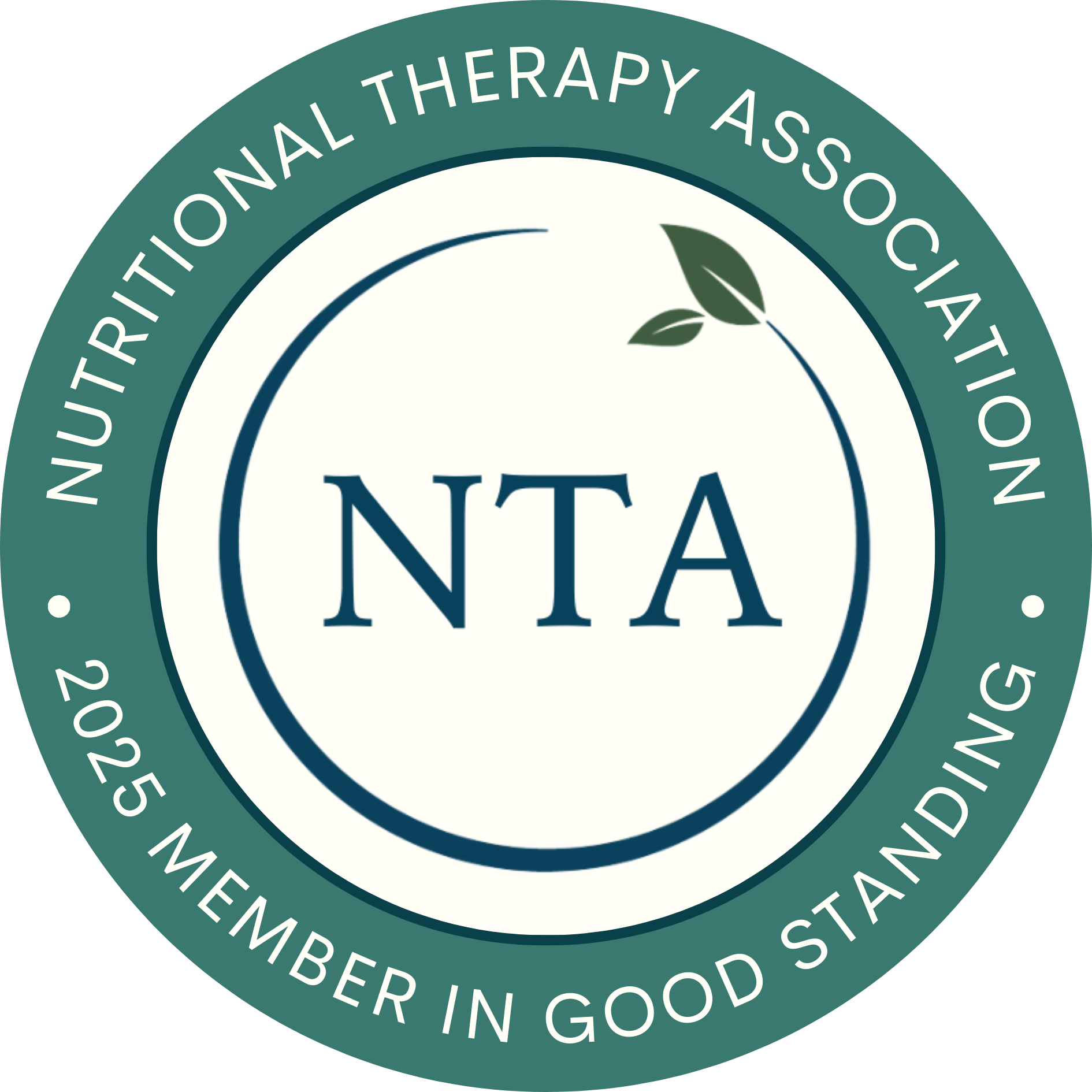Loving your digestion during the holidays

Primary Foundation: Digestion: absorb and defend
Every year, I thought it was just me.
We’d turn the calendar to December and not far into the month, inevitably, my digestive system would grind to a near halt, as if to say, “sorry, I don’t really feel like doing much right now.”
With the holiday season just revving up, this occurrence was literally happening at the worst time.
On a work front, we all know it’s holiday lunch season! Whether for your team, department, or organization, or even better, all of the above.
Indulgent lunches in celebration and acknowledgment of your efforts for the year? It kind of puts a damper on things when your digestion is not interested in rising to the occasion.
This scenario re-occurred for years and generally played out with me cursing my weak digestion and popping an assortment of digestive supplements in attempts to light a fire under it, trying to coax it back to work.
Nothing changed until my understanding of what was truly happening changed and I could adjust appropriately.
As it turns out, it wasn’t just me all along. There is indeed a downshift in our metabolism (of which digestion is a component) during the winter months, and this, in addition to other factors, can all add up to leaving our digestion feeling, well….sluggish.
Here are some factors that I have learned about that aren't spoken of very often:
- A seasonal shift into metabolic pathways that prioritize energy conservation, rest, and cellular repair which have been shaped by the forces of evolution and essential for our survival (in contrast to summer metabolism, that prioritizes activity and growth)
- Less light exposure at this time of year, means we are receiving fewer circadian light queues which impacts our hormone regulation and microbiome health
- Mild dehydration brought about by drier winter air and colder temperatures
- Reduced activity levels which impacts our gut motility (the speed at which food moves through our digestive tract) (1, 2, 3)
Now that we know it isn’t all just an illusion, I want to share with you how I have learned to enjoy the most wonderful time of the year, with this downshift in tow.
Here are some ways of giving your digestion some extra love during the holidays (and all winter long), so that it remains strong at absorbing and defending:
Get outside– this one is simple, but not easy, especially if getting outside during your workday involves an elevator. Even still, it is worth the trek.
Cellular health experts remind us of how pivotal receiving photons via natural light is for not only powering our cellular functions, but also appropriately queuing our body’s circadian rhythms, without which they become lost, essentially – like an orchestra without a conductor.
Granting yourself whatever opportunity you can to get outside and see the sun during the day, even for minutes at a time, is only going to be supportive to your entire body, on every level.
Fit in a walk– again, another simple one, but not always easy, especially when your day has you desk-bound. During the winter months, the cold weather also has us wanting to hunker down, rather than move, but incorporating the smallest measures can still be well worth the effort. A walk around the block gets the gut moving and gets you outside at the same time, so these double-hitter breaks are immensely supportive. Break free from that desk!
Drink enough water- each season seems to bring its own hydration challenges. In summer, it’s the heat and our consequential sweating, and in the winter, it’s the dry air and cold temperatures that impact our hydration, so we can never let our guard down on water intake.
I used to get a little frustrated when health experts would encourage us all to “hydrate hydrate hydrate”, but then never quantify exactly why or how much is enough, so I hope this fill in this gap for you.
Sufficient water intake of quality water (filtered or spring) is vital for the health of every single cell in our body, but in reference to our digestion specifically, our digestive process requires a total of 7 ½ liters of fluid input in order to make enough saliva, stomach acid, bile, and other digestive juices to function properly.
So, from a sheer raw material input perspective, you can see how important it is!
Of course, some of this fluid input will come from the food we eat, but how much pure water is enough?
Here is simple calculation:
Your body weight in lbs / 2 = Minimum # of ounces of pure water you need intake daily
Drinking a little more is often needed and certainly fine.
Not adding electrolytes into some of your water is also a common oversight. Electrolytes aren’t just for sweaty summer days, they are for every day.
The key electrolytes are: calcium, magnesium, sodium, potassium, and chloride.
Like their term suggests, they carry an electrical charge which allows them to regulate balance and function in many areas of the body such as our nerves, muscles, and fluids to name a few.
They are also key building blocks of the hydrochloric acid in our stomach, bile salts used by our gallbladder to emulsify fats, and also allow for the valves of our gallbladder to open and close properly to ensure that bile flows as it should.
This is all good news for our digestion.
Adding squeeze of lemon, pinch of quality salt (Himalayan or sea salt), and/or dollop of unpasteurized honey to some of your water can do the trick. Longer term, looking into a quality electrolyte concentrate is a worthwhile investment. (4)
Allow for a shift in your meals –one of the greatest difficulties I have with the daily grind of work is varying my eating patterns.
As a creature of habit, operating on “automatic pilot” with routine behaviour quite frankly is a time-saver, and easy to fall victim to. Because of this, I can get locked into habits that can be healthful, but aren’t necessarily responsive to my body’s needs.
Perhaps you find yourself falling into this pattern, too.
So, rather than applying the same old routine day in and day out, all year round, it is worth considering how you too can check in with your body, and offer it some seasonal variation. Trust me, it will appreciate being asked.
Here are some easy shifts in your meals to consider, which I have found to be helpful:
- From cold salads to leafy greens cooked in soups and/or broths (bone broth is particularly nutrient-dense and warming during the winter months)
- From nuts and seeds to oils, animal fats, and eggs
- From grains to root vegetables like squash, sweet potatoes, and potatoes
- From summer fruits to no fruit (it’s okay, honestly. It’s all a part of the seasonal shift) or stewed fruits kicking around from the fall, like apples and raisins
- Don’t be afraid to gently scale back on your typical quantities at times, if needed
You needn’t follow this to the letter, nor all year round. Just shift as it feels intuitively appropriate.
Your meals needn’t lose their structure either – remember what we learned with macronutrient balancing. You still want a representation of a protein, carbohydrate, and fat at each meal, but adjusting the form in which you intake that macronutrient can help offer ease to your digestion.
Pre-meal preparation –holidays or no holidays, giving your digestion a bit of pre-meal support is a wonderful start to equip it for the work that is ahead.
Remember what we learned about the value of the early stages of digestion in Don’t eat at your desk –just don’t.
Ginger is my all-time favourite digestive support.
It is a multi-talented food that has a long history of being revered for its qualities. When it comes to aiding digestion, it has been recognized for its ability to increase gastric secretions and encouraging enzyme production, improving gut motility and gastric emptying, not to mention ease stomach upset. (5, 6)
I’ve played around with different amounts and approaches, but here is the simple pre-meal preparation I’ve landed on:
- 1 tsp of grated (fresh) ginger
- Sprinkle of high-quality salt (like Himalayan or sea salt)
- Squeeze of lemon or lime (optional)
Simply take it 5 or so minutes before your meal. Yes, your mouth will salivate like crazy and it is a bit of a weird sensation to chew almost straight ginger like this, but you’ll get used to it and you may even start to welcome the digestive rev up.
Keep your plate simple –while social gatherings can sometimes bring a huge array of different foods to feast upon, exercising discernment in what you choose will help you side-step digestion distress.
Here are some ways to do that:
- Choose one protein on your main plate to stick to (rather than dancing around with many)
- Choose one starchy carbohydrate that you are most drawn to and fill the rest of your plate with veggies (which hopefully are available)
- Keep dairy (and bread) towards the end of the meal, where it is better situated to support satiation, rather than stalling digestion if eaten earlier on
- Enjoy one (or maybe two) desserts, rather than a second meal of desserts (it’s tough, I know!)
Savour taste and novelty, not quantity –it is said that in North America, we overindulge in what we love, but in other parts of the world, loving something means savouring and cherishing it. Touché.
I think there is great virtue in the latter and perhaps worth considering, if you find yourself leaning towards overindulgence.
From a digestive perspective, honouring rare treats of the season by celebrating their novelty will help you enjoy them in smaller amounts, rather than being plagued by the discomfort of overdoing it.
I don’t know anyone who drinks eggnog, or eats date squares all year round, so why not welcome in the different tastes and textures to help sharpen your senses and truly experience the season.
Practice “Hara-Hachi-Bu”– this is a perfect segue to the practice of “eating until 80% full”, which has long been practiced in Japan, particularly by the Okinawan people, known for their impressive health and longevity. It is predicated on the wisdom of moderation and mindfulness.
Eating slowly and comfortably paced will allow you to attune to your fullness queues and stop when you subjectively feel you have reached your 80% mark. This gives your stomach the space it needs for optimal digestion, while still fulfilling your dietary needs. (7)
Time-Restricted Eating (TRE) (or skip your evening meal) –while you may not have control over the timing at which feasting and enjoying food during social gatherings happens in your holiday schedule, you may find that you do have control over observing a cut off time, which will give your digestive system the needed opportunity to rest and repair itself overnight.
I stumbled upon the concept of Time-Restricted Eating when I was researching if having a snack before bed was a good or not-so-good thing, and that’s when I discovered the work of it’s founder, Dr. Satchin Panda.
Dr. Panda is a circadian and metabolic health expert whose research has led to the recommendation to contain one’s eating for the day within an 8 – 12 hour window of time. His research suggests that irrespective of what is eaten during this window of time, providing our bodies with a 12 -16 hour period of time to rest and recalibrate itself produces a multitude of health benefits ranging from improved digestive health and microbiome diversity, to metabolic health and insulin sensitivity, to increasing lifespan.
We just want to make it through the holidays, though, right?
His work highlights how influential circadian rhythms and light/dark cycles are on our overall metabolism (of which digestion is a component, remember). In his words, “what we eat is as important as when we eat.” (8, 9)
With this all in mind, if you’ve had a heavy lunch and an afternoon gathering and you get home at 8 pm and just aren’t hungry, don’t force yourself to have dinner just because you haven’t technically eaten it.
Perhaps have a tea, an Epsom salt bath, and head to bed early. It will do your body far more good to skip dinner and indulge in the extra rest, rather than trying to eat, or worse, spend the evening slowly nibbling the roof off your child’s gingerbread house until it’s bed time.
It’s okay, we’ve all done it.
But, now you are equipped with the knowledge that allows you to make a better choice.
As we wrap things up, it may come as no surprise to experience our social world and our natural world having different, albeit virtuous, agendas at this time of the year.
On one hand, our bodies are downshifting and more interested in conserving energy, whereas our social world is celebrating the best of the human spirit – generosity, creativity, and connection.
There is nothing wrong with either, it’s just awkward being stuck in the middle sometimes.
With a little awareness, intention, and simple structure, it is possible to happily move through the season, and take in the best of both worlds.
“Happiness for me is largely a matter of digestion.” - Lin Yutang
Happy Holidays!
Acknowledgments, References, and Further Reading
I wish to acknowledge and thank Cellular Health Expert, Justine Stenger, for teaching me the power of circadian biology and the principles of seasonal metabolism. Without her mentorship, I never would have understood the importance of these principles so clearly. Thank you, Justine!
1. Carla Garza-Lombó, Annika Schroder, Elsa M. Reyes-Reyes, Rodrigo Franco, mTOR/AMPK signaling in the brain: Cell metabolism, proteostasis and survival, Current Opinion in Toxicology, Volume 8, 2018, Pages 102-110, ISSN 2468-2020, https://doi.org/10.1016/j.cotox.2018.05.002. (https://www.sciencedirect.com/science/article/pii/S2468202017301134)
2. Wehr TA. Melatonin and seasonal rhythms. J Biol Rhythms. 1997 Dec;12(6):518-27. doi: 10.1177/074873049701200605. PMID: 9406025.
3. Slominski AT, Zmijewski MA, Plonka PM, Szaflarski JP, Paus R. How UV Light Touches the Brain and Endocrine System Through Skin, and Why. Endocrinology. 2018 May 1;159(5):1992-2007. doi: 10.1210/en.2017-03230. PMID: 29546369; PMCID: PMC5905393.
4. Wnorowski, T. (Aug 2024). Water & Gut Health: Does Drinking Water Really Help Digestion? Retrieved from: https://bodybio.com/blogs/blog/water-and-gut-health?_pos=6&_sid=524fad884&_ss=r
5. Link, R. (Nov 2024). 12 Ginger Benefits...for the Body and Brain. Retrieved from: https://draxe.com/nutrition/ginger-benefits/
6. Nikkhah Bodagh M, Maleki I, Hekmatdoost A. Ginger in gastrointestinal disorders: A systematic review of clinical trials. Food Sci Nutr. 2018 Nov 5;7(1):96-108. doi: 10.1002/fsn3.807. PMID: 30680163; PMCID: PMC6341159.
7. Ikigai Wellbeing. (Sep 2024) Hara Hachi Bu: The 80% Rule for Longevity and Mindful Eating. Retrieved from: https://ikigaiwellbeing.co/hara-hachi-bu/
8. Chaix A, Manoogian ENC, Melkani GC, Panda S. Time-Restricted Eating to Prevent and Manage Chronic Metabolic Diseases. Annu Rev Nutr. 2019 Aug 21;39:291-315. doi: 10.1146/annurev-nutr-082018-124320. Epub 2019 Jun 10. PMID: 31180809; PMCID: PMC6703924.
9. Panda, Satchin (Nov 2017). Health lies in healthy circadian habits| TEDx Beacon Street. Retrieved from: https://www.ted.com/talks/satchin_panda_health_lies_in_healthy_circadian_habits?subtitle=en



